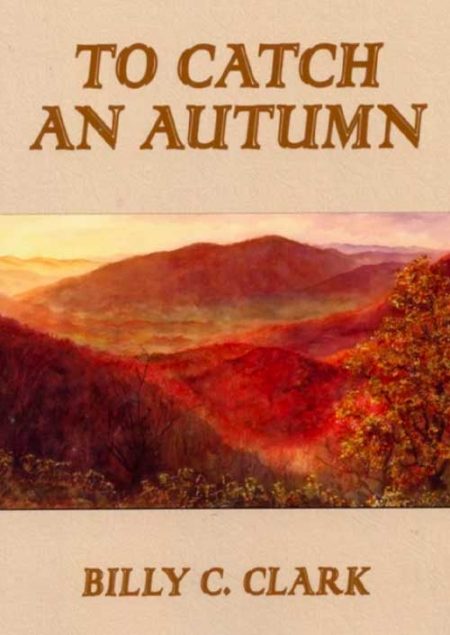-
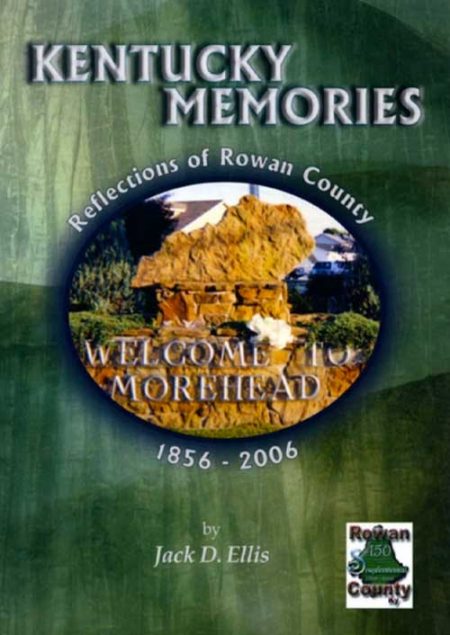 "In Kentucky Memories: Reflections of Rowan County, Jack Ellis has demonstrated an awareness of the important role of local history. During the past century-and-a-half, the human population of this amoeba-like area, carved out of Fleming and Morgan Counties, has matured into an Appalachian folk, cultural, economic, educational, and medical center. Literally scores of people have contributed both positively and negatively to the history of this community, and each of their acts in some form or another should remain as a record of their presence and activities. In the same way, every important human act documenting the past should should be passed on to future generations as a foundation for its presence and actions." — Dr. Thomas D. Clark HARDCOVER By Jack D. Ellis
"In Kentucky Memories: Reflections of Rowan County, Jack Ellis has demonstrated an awareness of the important role of local history. During the past century-and-a-half, the human population of this amoeba-like area, carved out of Fleming and Morgan Counties, has matured into an Appalachian folk, cultural, economic, educational, and medical center. Literally scores of people have contributed both positively and negatively to the history of this community, and each of their acts in some form or another should remain as a record of their presence and activities. In the same way, every important human act documenting the past should should be passed on to future generations as a foundation for its presence and actions." — Dr. Thomas D. Clark HARDCOVER By Jack D. Ellis -
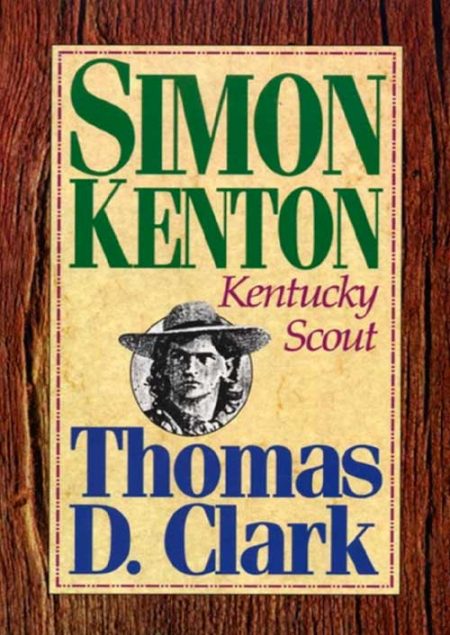 No part of American history is more exciting than the 1770s, when Europeans first settled west of the Appalachian mountains in the land now known as Kentucky. Simon Kenton’s story is synonymous with the story of that era. His life of excitement, adventure, and danger on the frontier made him one of the leading heroes of that time and, eventually a Kentucky legend. By Thomas D. Clark
No part of American history is more exciting than the 1770s, when Europeans first settled west of the Appalachian mountains in the land now known as Kentucky. Simon Kenton’s story is synonymous with the story of that era. His life of excitement, adventure, and danger on the frontier made him one of the leading heroes of that time and, eventually a Kentucky legend. By Thomas D. Clark -
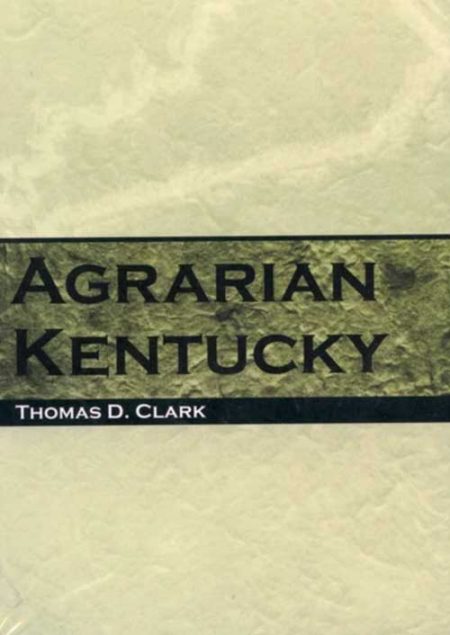 Since the earliest European settlers arrived in the area over two centuries ago, Kentuckians have felt a deep attachment to the land. From subsistence farmers in eastern Kentucky to wealthy horse owners in the central Bluegrass, land was, and continues to be, the state's greatest source of economic growth. It is also a point of nostalgia for a people devoted to tradition, a characteristic that has enriched Kentucky's culture but has proven detrimental to education and development. As timely now as when it was first published, Thomas D. Clark's classic history of agrarianism prepares readers for a new century that promises to bring rapid changes to the land and the people of Kentucky. By Thomas D. Clark
Since the earliest European settlers arrived in the area over two centuries ago, Kentuckians have felt a deep attachment to the land. From subsistence farmers in eastern Kentucky to wealthy horse owners in the central Bluegrass, land was, and continues to be, the state's greatest source of economic growth. It is also a point of nostalgia for a people devoted to tradition, a characteristic that has enriched Kentucky's culture but has proven detrimental to education and development. As timely now as when it was first published, Thomas D. Clark's classic history of agrarianism prepares readers for a new century that promises to bring rapid changes to the land and the people of Kentucky. By Thomas D. Clark -
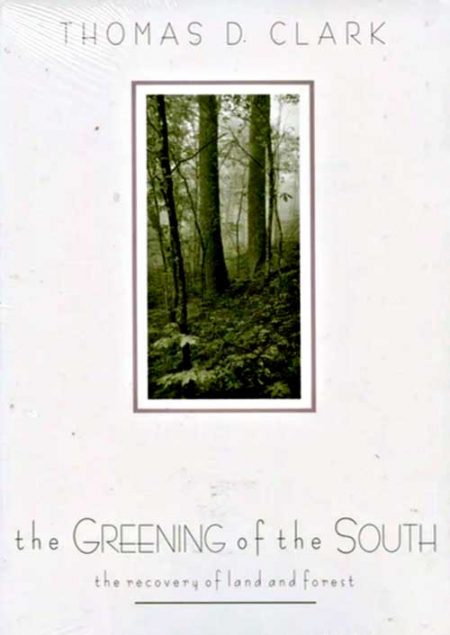 The region that ultimately became and remains today the South was originally a land of forests. Most of the species of trees that were native to North America flourished in the the South. For more than three centuries after the coming of the white man the southern forests gave way to agriculture and to the ravages of the lumber industry. But in the twentieth century, and largely since World War II, southerners and their industries have turned to controlled forestry and tree farming as being among the region’s most rewarding enterprises. Thus the recent decades have seen a remarkable new “greening of the South” By Thomas D. Clark
The region that ultimately became and remains today the South was originally a land of forests. Most of the species of trees that were native to North America flourished in the the South. For more than three centuries after the coming of the white man the southern forests gave way to agriculture and to the ravages of the lumber industry. But in the twentieth century, and largely since World War II, southerners and their industries have turned to controlled forestry and tree farming as being among the region’s most rewarding enterprises. Thus the recent decades have seen a remarkable new “greening of the South” By Thomas D. Clark -
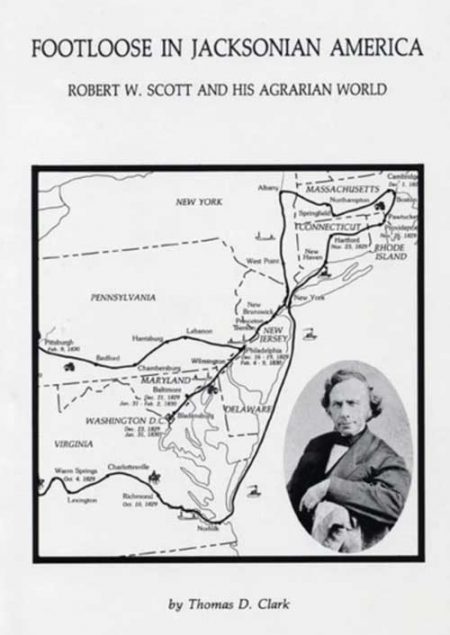 In the fall of 1829, young Robert Wilmot Scott rode away from Frankfort Kentucky on a trip that would take him through nine states. His journal entries about those travels present a vivid picture of Jacksonian America and of the prominent people of that era. Excellent pen portraits of James and Dolly Madison, James Monroe, John Marshall, James Buchanan, Sam Houston, Edward Everett, John C. Calhoun, John Randolph, John Quincy Adams, and others show Scott to be a famous Webster-Hayne debate; he gives a rich account of that discussion and its personalities. By Thomas D. Clark
In the fall of 1829, young Robert Wilmot Scott rode away from Frankfort Kentucky on a trip that would take him through nine states. His journal entries about those travels present a vivid picture of Jacksonian America and of the prominent people of that era. Excellent pen portraits of James and Dolly Madison, James Monroe, John Marshall, James Buchanan, Sam Houston, Edward Everett, John C. Calhoun, John Randolph, John Quincy Adams, and others show Scott to be a famous Webster-Hayne debate; he gives a rich account of that discussion and its personalities. By Thomas D. Clark -
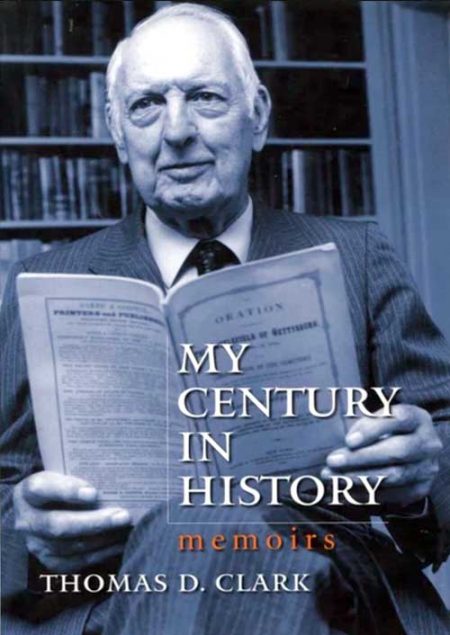 When Thomas D. Clark was hired to teach history at the University of Kentucky in 1931, he began a career that would span nearly three-quarters of a century and would profoundly change not only the history department and the university but the entire Commonwealth. His still-definitive History of Kentucky(1937) was one of more than thirty books he would write or edit that dealt with Kentucky, the South, and the American frontier. By Thomas D. Clark
When Thomas D. Clark was hired to teach history at the University of Kentucky in 1931, he began a career that would span nearly three-quarters of a century and would profoundly change not only the history department and the university but the entire Commonwealth. His still-definitive History of Kentucky(1937) was one of more than thirty books he would write or edit that dealt with Kentucky, the South, and the American frontier. By Thomas D. Clark -
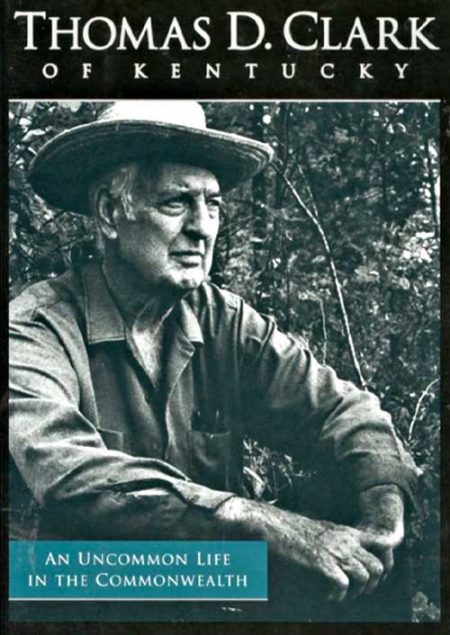 In 1990, the Kentucky General Assembly honored Thomas D. Clark by declaring him Kentucky’s Historian Laureate for life, at which time Governor Brereton Jones described him as “Kentucky’s greatest treasure.” Thomas D. Clark of Kentucky; An Uncommon Life in the Commonwealth is a celebration and exploration of the unparalleled life and career of a man who has both recorded the history and shaped the future of his adopted home state. Born on July 14th 1903, in Louisville, Mississippi, to a cotton farmer and a public school teacher, Clark was the oldest of seven children. Before enrolling in high school at age eighteen, he worked on a farm, in a sawmill, and as a cabin boy and deck hand on a dredge boat. After attending the University of Mississippi and earning graduate degrees at the University of Kentucky and Duke University, Clark joined the faculty of the University of Kentucky in 1931. There he chaired the history department from 1942 until 1965, influencing the lives of thousands of students.
In 1990, the Kentucky General Assembly honored Thomas D. Clark by declaring him Kentucky’s Historian Laureate for life, at which time Governor Brereton Jones described him as “Kentucky’s greatest treasure.” Thomas D. Clark of Kentucky; An Uncommon Life in the Commonwealth is a celebration and exploration of the unparalleled life and career of a man who has both recorded the history and shaped the future of his adopted home state. Born on July 14th 1903, in Louisville, Mississippi, to a cotton farmer and a public school teacher, Clark was the oldest of seven children. Before enrolling in high school at age eighteen, he worked on a farm, in a sawmill, and as a cabin boy and deck hand on a dredge boat. After attending the University of Mississippi and earning graduate degrees at the University of Kentucky and Duke University, Clark joined the faculty of the University of Kentucky in 1931. There he chaired the history department from 1942 until 1965, influencing the lives of thousands of students. -
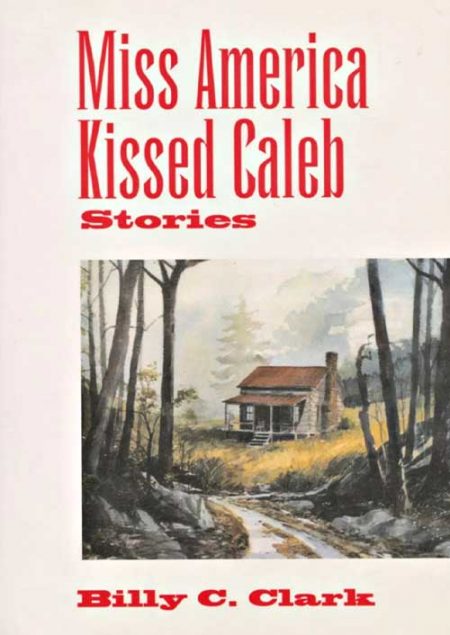 The mountain is a lonely place. Welcome to Sourwood, a small Kentucky town inhabited by men and women unique and yet eerily familiar. Among its joyful and tragic citizens we meet the crafty, spirited Caleb and his curious younger brother; Pearl, a suspected witch, and her sheltered daughter, Thanie; superstitious Eli; and the doomed orphan Girty. In Sourwood, the mountain is both a keeper of secrets and an imposing, isolating presence, shaping the lives of all who live in its shadow. Strong in both the voice and sensibilities of Appalachia, the stories in Miss America Kissed Caleb are at turns heartbreaking and hilarious. In the title story, young Caleb turns over his hard-earned dime to the war effort when he receives a coaxing kiss from Miss America, who sweeps into Sourwood by train, "pretty as a night moth." Caleb and his brother share in the thrills and uncertainties of growing up, making an accidental visit to a brothel in "Fourth of July" and taming a "high society" pooch in "The Jimson Dog." These stories invoke a place and a time that have long passed―a way of living nearly extinct―yet the beauty of the language and the truth revealed in the characters' everyday lives continue to resonate with modern readers. By Billy C. Clark
The mountain is a lonely place. Welcome to Sourwood, a small Kentucky town inhabited by men and women unique and yet eerily familiar. Among its joyful and tragic citizens we meet the crafty, spirited Caleb and his curious younger brother; Pearl, a suspected witch, and her sheltered daughter, Thanie; superstitious Eli; and the doomed orphan Girty. In Sourwood, the mountain is both a keeper of secrets and an imposing, isolating presence, shaping the lives of all who live in its shadow. Strong in both the voice and sensibilities of Appalachia, the stories in Miss America Kissed Caleb are at turns heartbreaking and hilarious. In the title story, young Caleb turns over his hard-earned dime to the war effort when he receives a coaxing kiss from Miss America, who sweeps into Sourwood by train, "pretty as a night moth." Caleb and his brother share in the thrills and uncertainties of growing up, making an accidental visit to a brothel in "Fourth of July" and taming a "high society" pooch in "The Jimson Dog." These stories invoke a place and a time that have long passed―a way of living nearly extinct―yet the beauty of the language and the truth revealed in the characters' everyday lives continue to resonate with modern readers. By Billy C. Clark -
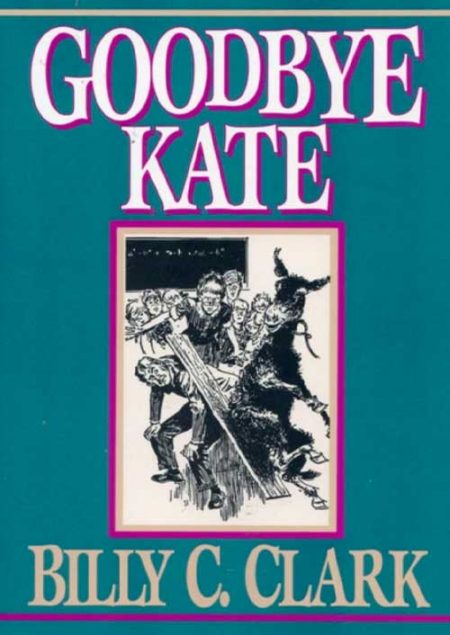 Goodbye Kate, Billy C. Clark’s sixth novel, is based in part on a mule he once owned. In the novel, Kate is found far back in the hills by a lonely country boy named Isaac Warfield. He lives close enough to Tatesburg, the nearest town, to walk to school there, but it’s a small town, and his home is isolated. Isaac has graduated from the little country school he has attended and the other members of his class will be moving on to another school, or to no school at all. He won’t have much contact with his friends anymore, and the nearest neighbor, a money-hungry man named Simm Johns, has no children and is “mean as a striped snake.” Isaac finds Kate when he goes back into the hills to pick some blackberries for his mother. The little mule is apparently as lonely as Isaac is, and she adopts him and follows him home – as far as the pine grove above the house, that is. By Billy C. Clark
Goodbye Kate, Billy C. Clark’s sixth novel, is based in part on a mule he once owned. In the novel, Kate is found far back in the hills by a lonely country boy named Isaac Warfield. He lives close enough to Tatesburg, the nearest town, to walk to school there, but it’s a small town, and his home is isolated. Isaac has graduated from the little country school he has attended and the other members of his class will be moving on to another school, or to no school at all. He won’t have much contact with his friends anymore, and the nearest neighbor, a money-hungry man named Simm Johns, has no children and is “mean as a striped snake.” Isaac finds Kate when he goes back into the hills to pick some blackberries for his mother. The little mule is apparently as lonely as Isaac is, and she adopts him and follows him home – as far as the pine grove above the house, that is. By Billy C. Clark -
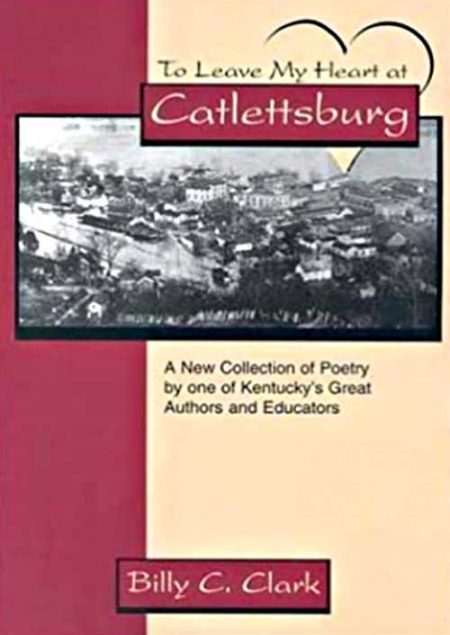 This sense of appreciation for earth and its creatures runs through all of the poems in To Leave My Heart at Catlettsburg and results in a poignant literacy tribute, a gift to a town and its people. Beyond that, this book reminds all readers to observe the world more carefully and to listen more sensitively, to be more alive to the beauty and sturggles around us, to be more grateful for passing through. By Billy C. Clark
This sense of appreciation for earth and its creatures runs through all of the poems in To Leave My Heart at Catlettsburg and results in a poignant literacy tribute, a gift to a town and its people. Beyond that, this book reminds all readers to observe the world more carefully and to listen more sensitively, to be more alive to the beauty and sturggles around us, to be more grateful for passing through. By Billy C. Clark -
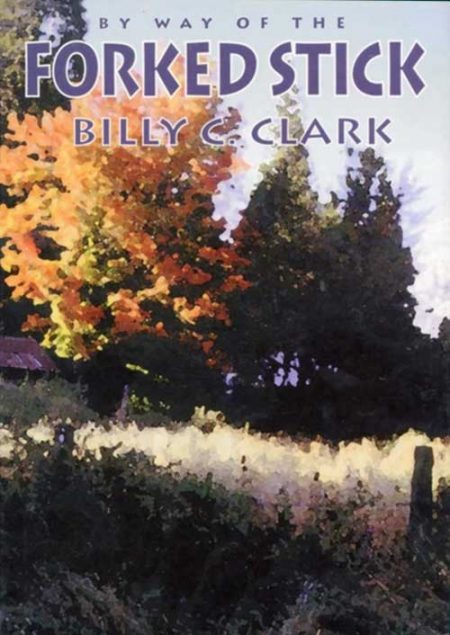 In the little Appalachian town of Sourwood, life at the end of the Great Depression may have been tough, but it was rich beyond compare. Building on a distinguished body of work celebrating and preserving mountain culture, renowned writer Billy C. Clark once again revisits his boyhood during a bygone era. By Way of the Forked Stick offers four fictional stories drawn from the author's childhood experiences of the 1930s—tales that vividly convey the down-home spirit of a lost way of life. By Billy C. Clark
In the little Appalachian town of Sourwood, life at the end of the Great Depression may have been tough, but it was rich beyond compare. Building on a distinguished body of work celebrating and preserving mountain culture, renowned writer Billy C. Clark once again revisits his boyhood during a bygone era. By Way of the Forked Stick offers four fictional stories drawn from the author's childhood experiences of the 1930s—tales that vividly convey the down-home spirit of a lost way of life. By Billy C. Clark


